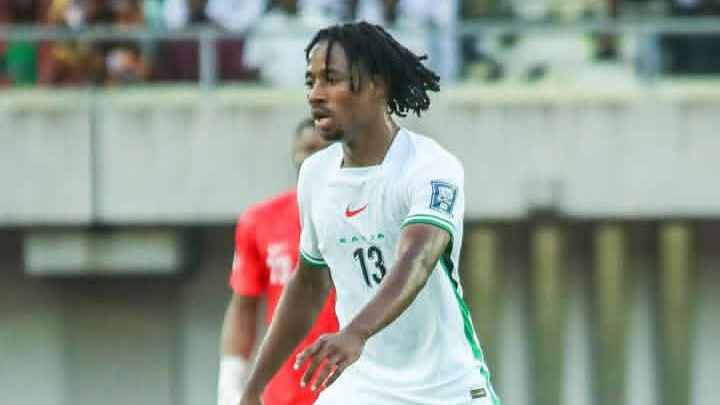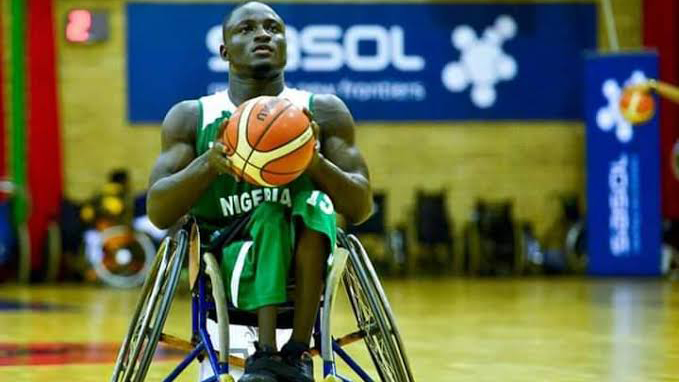Despite the huge importance of community sports centres, which serve as nurseries where budding athletes exhibit their fledgling skills in their formative years, governments at different levels have continued to falter in their provision. CHRISTIAN OKPARA reports that the dearth of community sports centres has contributed to the steep decline in sports development.
Grassroots sports facilities are crucial in building budding athletes from the cradle. Indeed, sports facilities at this level help skilful youngsters to grow their talents in an environment that allows them to train without pressure.
Facilities located in the communities, close to the people, help scouts to identify and develop talents from their teen years.This explains why most developed countries pay premium attention to facilities development in rural communities, knowing too well that when they get it right at that level of society, they have paved the way for a bright future in sports.
The United Kingdom, for instance, recently announced a £100 million funding package for grassroots sport across the kingdom. According to the UK government, investment, delivered in partnership with football foundations and associations across all four nations, will support upgrades to hundreds of local sports facilities in the 2025/26 cycle.
Facilities to be built with this fund include new and improved pitches, changing rooms, clubhouses, floodlights and goalposts. The funding is also aimed at enhancing the experience of players, coaches and volunteers across the country.
It said that at least 40 per cent of the funded projects will feature a multi-sport offer, ensuring that local communities have access to a range of activities beyond football, such as cricket, rugby and basketball.
This multi-sport approach means the sports funding will go even further in helping people find a sport that suits them, boosting participation and improving inclusivity.
Communities’ facilities development is not alien to Nigeria. As a matter of fact, right from the colonial days up to the early 1990s, governments at all levels paid attention to facilities development at the grassroots to create opportunities for budding athletes to hone their skills and also provide playgrounds for those children who are not necessarily expected to grow to become elite athletes.
Thus, estates and new community developers built playgrounds inside their projects to accommodate the needs of the young ones. Sadly, that culture gradually petered away in the late 1990s when government officials started selling areas mapped out for sports and recreational activities in the major estates. Coupled with the non-provision of sporting facilities in many of the country’s schools built in this period, most children are no longer exposed to the different games in their formative years.
The Federal Government, under President Goodluck Jonathan, in 2015, tried to arrest this situation when it proposed and started building sports facilities across the country. The idea then was to ensure that every region had at least one standard facility.
The idea, according to the then Sports Minister, Bolaji Abdullahi, was to rouse the 36 states and the 774 local councils in the country to provide sporting facilities across communities in their domains to help raise the standard of sports in the country.
He explained that the responsibility of providing facilities for sports at the grassroots level lies with the states and local governments, adding that the Federal Government’s efforts were to rouse the states and councils to take up the responsibility.
The Federal Government succeeded in providing the community sports centres in the regions, but the programme was discarded when President Goodluck Jonathan left office in 2015.
Some of these facilities are now in disarray and no longer fit for the purpose they were built for in the first place. The National Sports Commission (NSC) recently said that it would look into rehabilitating the facilities as part of efforts to ensure that the country has enough infrastructure to train its budding talents.
When the NSC launched its programme for “comprehensive transformation of Nigeria’s sports facilities, targeting the revival of iconic stadiums nationwide through innovative public-private partnerships, the Commission’s Chairman, Shehu Dikko, outlined an ambitious plan to rehabilitate and/or build new facilities across the country to serve the needs of the local communities and clubs.
He said the plan was captured in the NSC’s N94 billion budget for 2025, adding that this substantial funding will support not only stadium renovations but also the construction of about 100 mini-stadiums to boost grassroots sports development.
The Guardian’s investigation showed, however, that the country’s current economic situation has delayed the commission’s bid to meet grassroots development projects.
An NSC official told The Guardian that the Federal Government is working around the clock to address the sporting infrastructure deficit, adding that the NSC leadership has brought in “private sector players to key into this vision.”
The official, who pleaded anonymity, said: “If you followed meetings of our chairman and the director general with the private sector, you would see that things are beginning to gel in our effort to revive and build as many facilities as possible.
“The new look MKO Abiola Stadium in Abeokuta, which was rebuilt by the Ogun State government ahead of the last National Sports Festival, is one of such projects done with some input by the NSC. There are several other ongoing projects like that.”
Supporting the NSC’s claims on sports facilities, the Edo State Sports Commission Chairman, Desmond Enabulele, said that the community sports centre built by the Federal Government for the South-South zone in Benin City is functional and critical to the state’s sports development efforts.
He said: “The Federal Government built a sports complex in Etete, GRA, Benin. It has been handed over to the South-South, and it was one of the facilities we used when we hosted the National Sports Festival in 2020. It is called the Etete Sports Complex.”
Apart from the Etete Sports Complex, Enabulele said that the Edo State government has embarked on facilities development in all the 18 councils of the state to ensure that people at the grassroots have a place where they can train and nurture their talents.
“We have built four of these mini stadiums already. The four completed facilities are two in Oredo, one in Egan and one in Ikpoba Okha. They have been handed over to these communities.
“We are doing this because we are focused on grassroots development. We want to take sports to the communities, to the people, for easy accessibility. These are all funded by the state government,” he said.
Like Enabulele, the technical director of the Lagos State Sports Commission, Uthman Okunnu, said that the state has also embarked on a community project that will provide sports centres across the state.
He said: “I don’t know what has happened to the federal government project, but I can tell you that the Lagos State government has opened up the facilities such that there are now many to choose from.
“The sports centres in Sam Shonibare in Surulere, the ones in Ikeja and Lagos Island are open for use. The Rowe Park Centre is also functional and hosts events.
“Three of the nine stadiums promised by the state government will be delivered before the end of the year. These completed stadiums, located in Orile Agege, Ikorodu and Gbagada, will be delivered soon. Work is in progress on the other six.
“Work on the Teslim Balogun Stadium is almost done. They are now laying the turf after completing the gallery. This will also be delivered soon.”
Veteran sports journalist, Sab Osuji, said that the dearth of community sports centres would have been properly dealt with if politicians paid attention to sports development.
Osuji said that states with some semblance of efforts in the direction of sports development are the ones with sports-loving governors, adding that many of the governors, especially in the South-East, do not see the need to invest in community sports facilities. On the Federal Government-sponsored community sports centres, Osuji described it as a noble idea that died on the altar of politics.
“The Federal Government built the South-East centre in Mbaise, Imo State, and it functioned properly for a while. But the place ceased to function as it was meant to be when the former NSC Director General, Dr Patrick Ekeji, who is from Imo State, retired from service. What then happened was that the NSC withdrew all the staff that worked at the centre, and the place simply collapsed.
“There were five such centres across Imo State, but none is functioning properly.” The northern region has some of the most historically significant stadiums in the country, but just like the South-East, it lacks purpose-built community centres that youths require to hone their skills from infancy.
The Ahmadu Bello Stadium, Kaduna, Sani Abacha Stadium, Abubakar Tafawa Balewa Stadium, Bauchi and the New Jos Stadium are some of the North’s iconic stadiums that have hosted important events. But they lack sufficient nurseries for the budding talents in the region’s vast land.
Apart from Kaduna, Kano, Plateau and Bauchi, most of the other northern states lack structured playgrounds that children need to display their talents.
A former athlete, Moses Abah, told The Guardian that Benue State had some primary facilities for sports in the past, but unfortunately, the state has since “discarded some of the things that made it great in the past.”
He said: “Politicians have not developed sports and infrastructure the way one would have expected under civilian governments. We used to have functional sports centres in all parts of the state, but it seems that with time, we have forgotten all these things. Even stadiums, in the days of BCC Lions, we had a top stadium in Gboko that served as the club’s home ground. There was also the Emmanuel Akume Stadium in Katsina Ala, as well as the Aper Aku Stadium in Makurdi. But today, none is fit to host a league game.
“The only places you can now find playgrounds for children are army barracks, old government schools and police formations. “Plateau State has some good facilities, but insecurity has made most of them inaccessible to children and budding talents.”
A veteran sports administrator, Ado Salisu, describes Kano as one of the few states with a well-structured grassroots plan that factored in facilities’ development as part of the talent-building process.
Salisu, who is also a journalist, said that the state government built some facilities across the state to take care of the needs of some of the major sports.
“The Federal Government did not build any community sports centre in Kano, but the state government under Kwakwanso built some of these facilities across the state.
“There is the Mahaha Sports Centre and the Karfi Sports Institute, which is attached to Aliko Dangote University of Science and Technology. They train coaches and other officials at the institute.
“Deputy Senate President, Barau Jibrin, who is the sponsor of Barau FC, is upgrading the Karfi Institute’s stadium to host the club’s matches at the new site.
“There are many other community centres scattered all over the state.”






